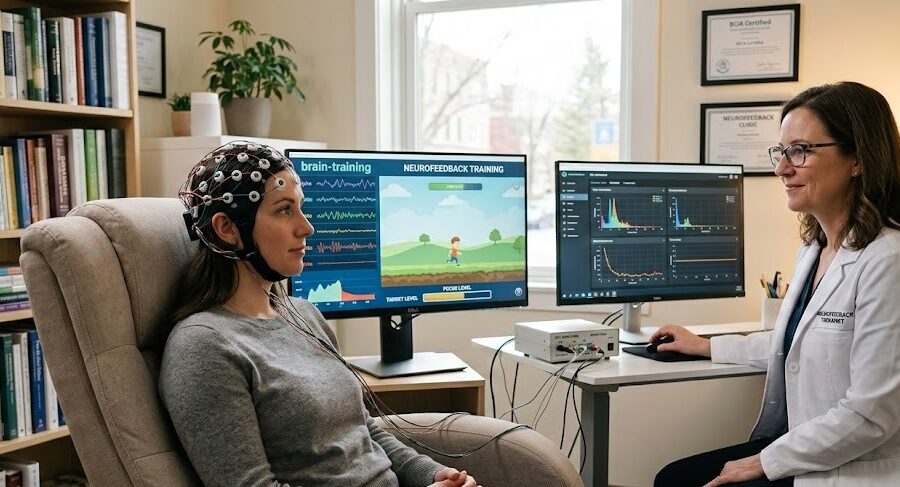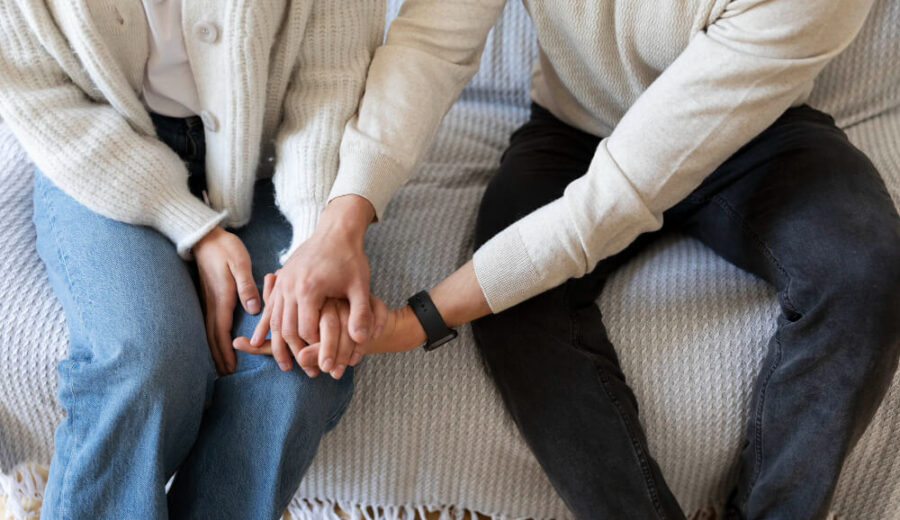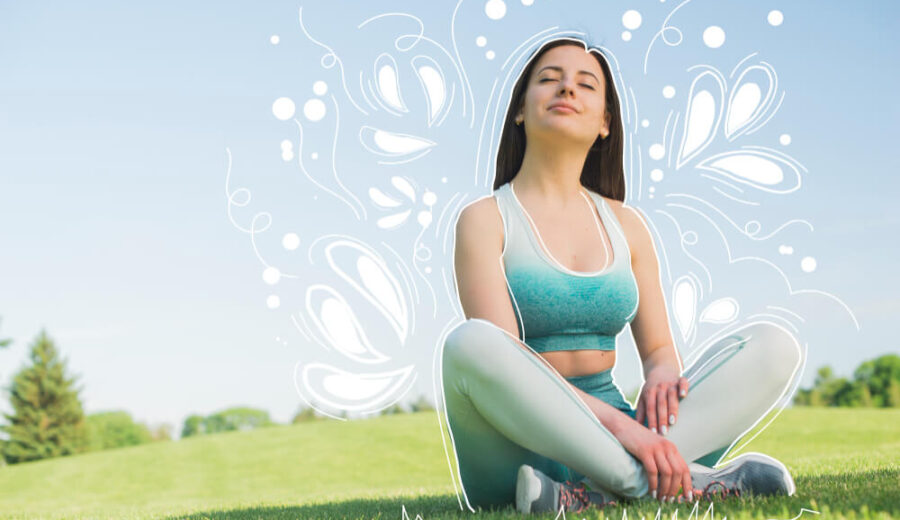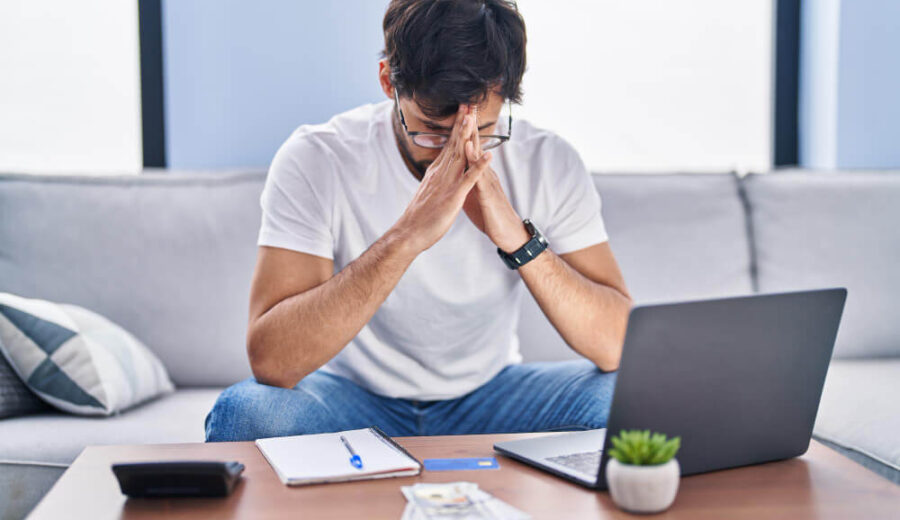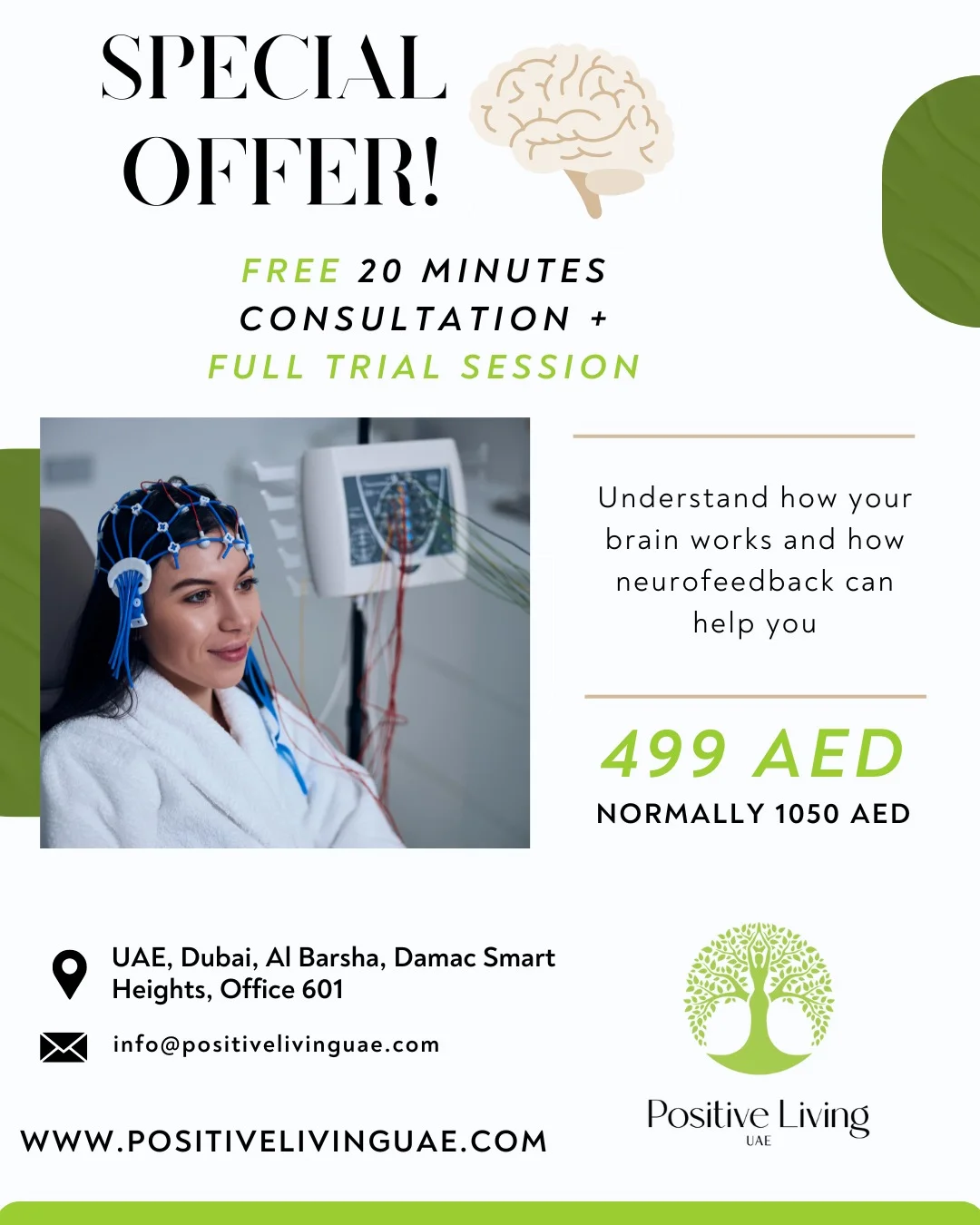How Neurofeedback Improves Memory and Concentration
In today’s fast-paced world, many people struggle with poor concentration, mental fatigue, Stress, lack of sleep, anxiety, and constant digital distractions, which can all affect how well your brain focuses and processes information.
This is where neurofeedback therapy can make a real difference. It’s a gentle, drug-free method that helps train your brain to function more efficiently, improving both memory and focus over time.
What Is Neurofeedback?
Neurofeedback is a type of neurofeedback treatment that monitors your brainwave activity and provides real-time feedback. This helps your brain learn healthier and more balanced patterns.
As the brain becomes more regulated, it can:
- Process information more clearly
- Stay focused for longer periods
- Reduce mental fatigue
- Improve memory retention
At Positive Living UAE, neurofeedback sessions are tailored to each individual’s brain patterns and mental health goals, ensuring a personalised and supportive approach.
How Neurofeedback Improves Concentration
1. Balances Brainwave Activity
Difficulty concentrating is often linked to unbalanced brainwave patterns. For example:
- Too much slow-wave activity can cause brain fog
- Too much fast-wave activity can lead to anxiety and restlessness
Neurofeedback for concentration trains the brain to maintain optimal attention and clarity.
2. Reduces Mental Distractions
An anxious or overstimulated brain finds it hard to stay focused. Neurofeedback helps calm overactive areas of the brain, making it easier to:
- Stay present in tasks
- Avoid constant distractions
- Complete work more efficiently
3. Increases Mental Stamina
Many people feel mentally tired after short periods of focus. Neurofeedback helps improve the brain’s efficiency, which can lead to:
- Longer attention spans
- Better productivity
- Less mental exhaustion
How Neurofeedback Supports Better Memory
1. Improves Information Processing
When brain activity becomes more balanced, the brain can process and store information more effectively. This helps with:
- Learning new material
- Remembering important details
- Retaining information for longer periods
2. Enhances Sleep Quality
Sleep plays a major role in memory consolidation. Neurofeedback often improves sleep patterns, which leads to:
- Better memory retention
- Improved mental clarity
- Faster thinking
3. Reduces Stress and Anxiety
High stress levels can interfere with memory and focus. Neurofeedback helps calm the nervous system, allowing the brain to:
- Think more clearly
- Recall information more easily
- Stay focused under pressure
Who Can Benefit from Neurofeedback for Concentration?
Neurofeedback therapy may help:
- Students who struggle with focus or memory
- Professionals dealing with mental fatigue
- Individuals with attention difficulties
- People experiencing stress or anxiety
- Anyone wanting a sharper mental performance
What to Expect from Neurofeedback Treatment
A typical neurofeedback treatment session involves:
- Placing small sensors on the scalp
- Monitoring brainwave activity
- Receiving feedback through visuals or sounds
- Training the brain to maintain healthier patterns
Sessions are:
- Painless
- Non-invasive
- Customised to individual needs
At Positive Living UAE, each session is designed around your specific challenges.
Final Thoughts
Improving memory and concentration isn’t just about willpower; it’s about how your brain functions. Neurofeedback therapy helps train your brain to stay balanced, focused, and mentally sharp.
If you’re looking for a natural, drug-free way to improve focus and memory, neurofeedback therapy at Positive Living UAE can be a powerful solution to support your mental performance and overall well-being.


